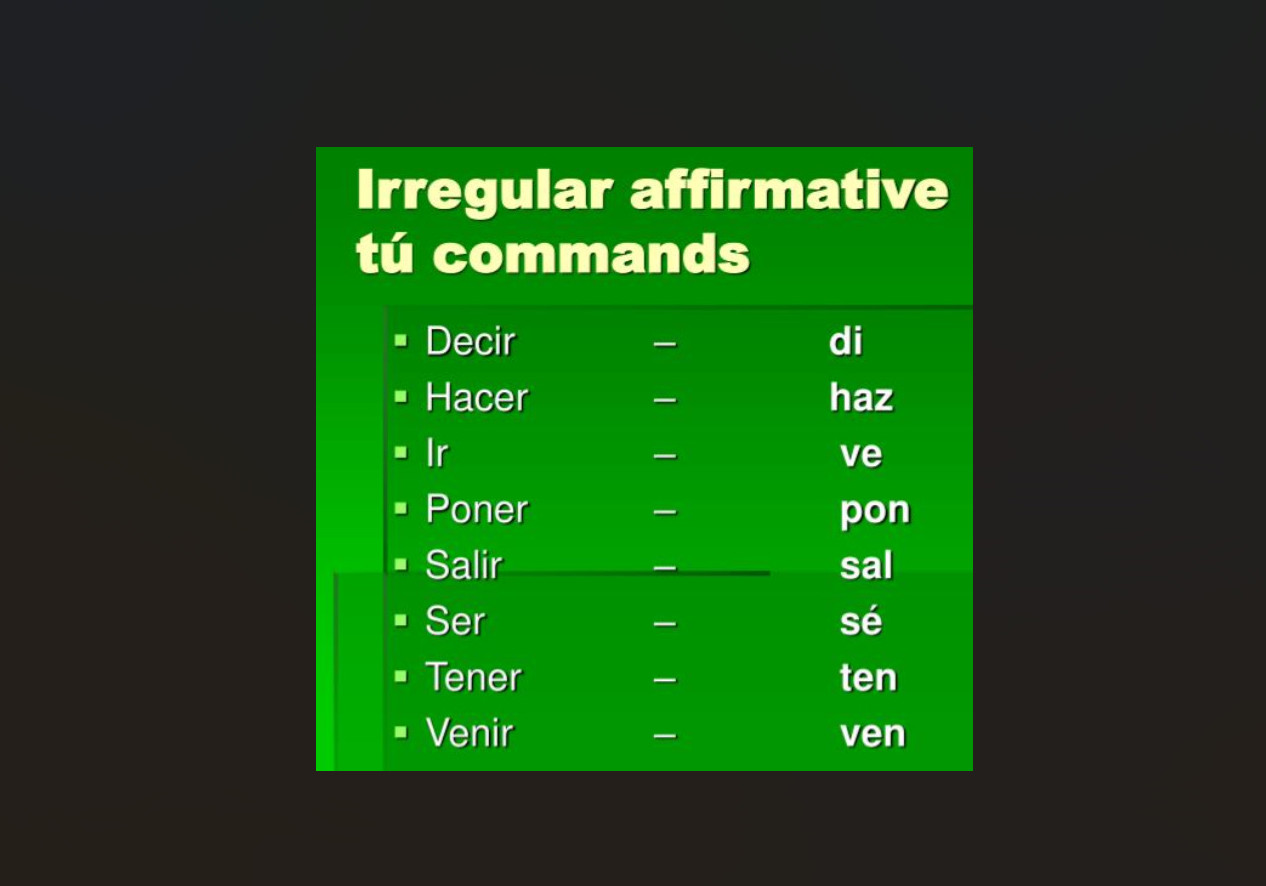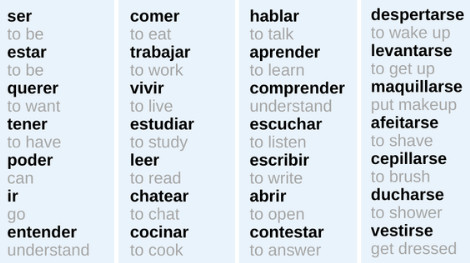Grammar
Posts related to Spanish grammar.
Latest stories
More stories
-
175 Views
in Grammar, Mexico, Video, VocabularyMaría Inés, a famous telenovela character
by
Admin updated
A Little Background on Mirada de Mujer Mirada de Mujer is one of those Mexican telenovelas that really changed the way people looked at the genre. It aired from 1997 to 1998 on TV Azteca and was produced by Argos Televisión. With Angélica Aragón in the role of María Inés, it became an unforgettable story. […] More
-
96 Views
in Grammar, Spanish, Translation, VocabularySer and Estar: Your Essential Spanish Guide
by
Admin updated
Learning Spanish can be a wonderful and challenging task. One of the most common difficulties for students is knowing when to use the verbs Ser and Estar. Both translate to “to be” in English, but they have very different uses in Spanish. Don’t worry, by the end of this post, you’ll have a clearer idea! […] More
-
57 Views
in Culture, Grammar, Spanish, Translation, VocabularyMadrugar — and the Beautiful Word Madrugada
by
Admin
In Spanish, madrugar means “to wake up very early in the morning.” At first, it sounds simple — just wake up early, right? But this word is more than a clock time. It carries a cultural feeling: starting your day before most people are even thinking about coffee. The word comes from madrugada, which is […] More
-
91 Views
in Culture, Funny, Grammar, Spanish, VocabularySpanish Suffixes: re-, rete-, requete- to Exaggerate
by
Admin updated
In Spanish, we can exaggerate meaning by adding special prefixes to adjectives and adverbs.The most common ones are: re- rete- requete- They all mean very, super, extremely — but in a more informal or playful way.Sometimes they are used in everyday speech, sometimes in children’s books, and sometimes just for fun. re- This is the […] More
-
33 Views
in Grammar, VocabularyMandatos / comandos Irregulares de “Tú” con Pronombres (RID)
by
Admin updated
Irregular tú Commands Infinitive Affirmative Command Negative Command decir (to say, tell) di no digas hacer (to make, do) haz no hagas ir (to go) ve no vayas poner (to put) pon no pongas salir (to leave) sal no salgas ser (to be) sé no seas tener (to have) ten no tengas venir (to come) […] More
-
256 Views
in Grammar, Spanish, Table of Expressions, Translation, VocabularyLO BUENO, LO MALO, LO INTERESANTE, LO MEJOR.
by
Admin updated
Mastering expressions that use the neuter definite article “lo” can greatly enhance your Spanish skills. Below are some examples and their uses: English Common Student Translation Using the Neuter Article The bad thing(s) La cosa mala Lo malo The best thing La cosa mejor Lo mejor The funny thing(s) La cosa chistosa/divertida Lo chistoso/divertido […] More
-
213 Views
in Culture, Grammar, Spanish, Table of Expressions, Translation, VocabularyBuenísimo
by
Admin updated
The usage of “-isimo” and its variants in Romance languages originates from Classical Latin. This shows how linguistic elements can last through centuries of language evolution, even as the languages themselves diverge and develop unique characteristics. The Latin suffix to indicate the superlative degree of adjectives “-issimus” was inherited by Spanish, Italian, Portuguese, and Catalan […] More
-
88 Views
in Culture, Grammar, Spanish, Translation, VocabularyWhy English and Spanish form their plurals using an S
by
Admin updated
Languages that form noun plurals by adding an “s” include just a handful and are some of the most widely spoken languages in the world. English: Most nouns form their plural by adding “s” (e.g., cat → cats, car → cars). If the noun ends in -s, -x, -z, -sh, or -ch, an “es” is […] More
-
183 Views
in Culture, Funny, Grammar, Spanish, Table of Expressions, Translation, VocabularyNavigating the Tricky World of False Cognates in Italian and Spanish
by
Admin updated
False cognates refresher: False cognates are words that look or sound alike in two languages but mean completely different things. They can be particularly misleading for language learners because their familiar appearance can make you think you understand them, only to find out later that you’ve misunderstood the conversation. Examples: To help you navigate […] More
-
149 Views
in Culture, Grammar, Spanish, Translation, VocabularyThese are some words in Catalan that a Spanish speaker cannot understand
by
Admin updated
Despite the similarities between Catalan and Spanish, there are some specific Catalan words that Spanish speakers find very difficult to understand. Since the recognition of Catalan as a co-official language in 1979, there have been significant efforts to promote its use in Catalonia. This bilingual environment has led to the incorporation of many Spanish influences […] More
-
38 Views
in Grammar, Spanish, VocabularyPreterite and Imperfect verb tenses.
by
Admin updated
Here I show ten sentences in Spanish that use both the preterite and imperfect verb tenses. By studying these sentences and their explanations, you can gain a better understanding of the different uses of these tenses, which are important for communicating effectively in Spanish. The preterite tense is used to describe specific, completed actions in […] More
-
30 Views
in Funny, Grammar, Spanish, Table of Expressions, Translation, Vocabulary10 expressions that are NOT so easy to figure out.
by
Admin updated
Spanish is an interesting and complex language, full of colorful expressions and idioms. Learning these expressions can greatly enhance your understanding of the language and allow you to communicate more effectively with native speakers. In this post, we’ve compiled another list of 10 Spanish expressions, along with their literal translations and English equivalents. Whether you’re […] More

















